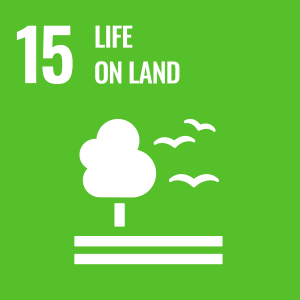
Ekow Bartels
Academic and research departments
About
My research project
Contextualizing Innovation in Africa's Informal Small-Scale Mining; Development Trajectories, Impacts and Policy ImplicationsThe research will critically reappraise and contextualize innovation strategies in Artisanal and Small-Scale Mining (ASM) in sub-Saharan Africa, with a view to invigorating debate on the sector’s formalization narrative. It focuses heavily on the innovation strategies at work in the region’s burgeoning informal ASM economy. This is the larger of what is referred to here as the “two distinctive spheres” of the ASM sector now rooted in sub-Saharan Africa, the other being the legalized formalized segment. The research will raise broader questions for research, including how have miners managed to produce minerals? what innovation strategies have they employed in a bid to increase their production? and what forms of support can and have they drawn on in the informal economy?
The specific objectives of the research are as follows:
1. To broaden understanding of what innovation means in the ASM context in sub-Saharan Africa and the strategies it has spawned, the impetus behind the sector’s formalization agenda, and the technical manifestations of these ideas.
2. To analyze the dynamics of innovation in the region’s informal ASM economy and
3. To broaden understanding of the support networks which sustain these operations.
Supervisors
The research will critically reappraise and contextualize innovation strategies in Artisanal and Small-Scale Mining (ASM) in sub-Saharan Africa, with a view to invigorating debate on the sector’s formalization narrative. It focuses heavily on the innovation strategies at work in the region’s burgeoning informal ASM economy. This is the larger of what is referred to here as the “two distinctive spheres” of the ASM sector now rooted in sub-Saharan Africa, the other being the legalized formalized segment. The research will raise broader questions for research, including how have miners managed to produce minerals? what innovation strategies have they employed in a bid to increase their production? and what forms of support can and have they drawn on in the informal economy?
The specific objectives of the research are as follows:
1. To broaden understanding of what innovation means in the ASM context in sub-Saharan Africa and the strategies it has spawned, the impetus behind the sector’s formalization agenda, and the technical manifestations of these ideas.
2. To analyze the dynamics of innovation in the region’s informal ASM economy and
3. To broaden understanding of the support networks which sustain these operations.
ResearchResearch interests
Natural Resources for Sustainable Development, Sustainable Mining Practices, Innovation in Mining
Research interests
Natural Resources for Sustainable Development, Sustainable Mining Practices, Innovation in Mining
Sustainable development goals
My research interests are related to the following:



Publications
This paper contributes to the debate on formalization of artisanal and small-scale mining (ASM) – low-tech, labour-intensive mineral extraction and processing – in sub-Saharan Africa, drawing on fresh insights from Ghana. In the early-1990 s, with support from GTZ, the German technical arm, Ghana implemented its Small-Scale Mining Project (SSMP), an institutional framework designed specifically to facilitate legalization of, and administer assistance to, ASM. Whilst at the time of its launch, the SSMP was lauded in donor circles as a best practice governance structure for formalizing ASM in sub-Saharan Africa, its existence was short-lived because of poor planning, uncoordinated execution, and a general lack of commitment on the part of government and donors to fulfilling its objectives. The institutional, policy and regulatory framework that has emerged in its place has stifled formalization of the sector by introducing a number of barriers that have prevented operators from legalizing their activities and accessing crucial support services. Ghana’s small-scale miners have long called for the implementation of a more operator-friendly licensing apparatus and support structure, although it is becoming increasingly evident that such change is unlikely to happen without an unprecedented intervention. This, however, may be supplied in the form of the Community Mining Scheme (CMS), launched by Ghana’s senior government officials in 2019 in a bid to ringfence specific areas for licensed ASM. Wide adoption of the CMS promises to transform the governance of ASM in Ghana into a more operator-friendly and efficient process by engaging local government units hitherto marginalized in the sector’s formalization process; (re)establishing a decentralized platform donors desperately covet to implement projects with greater precision; and revitalizing dormant policy interventions – foremost, the list of Designated Areas for Small Scale Gold & Diamond Mining in Ghana, initiated by the government in May 2009 – that are keys to facilitating a robust grassroots institutional presence for licensing and a galvanized support structure for operators.